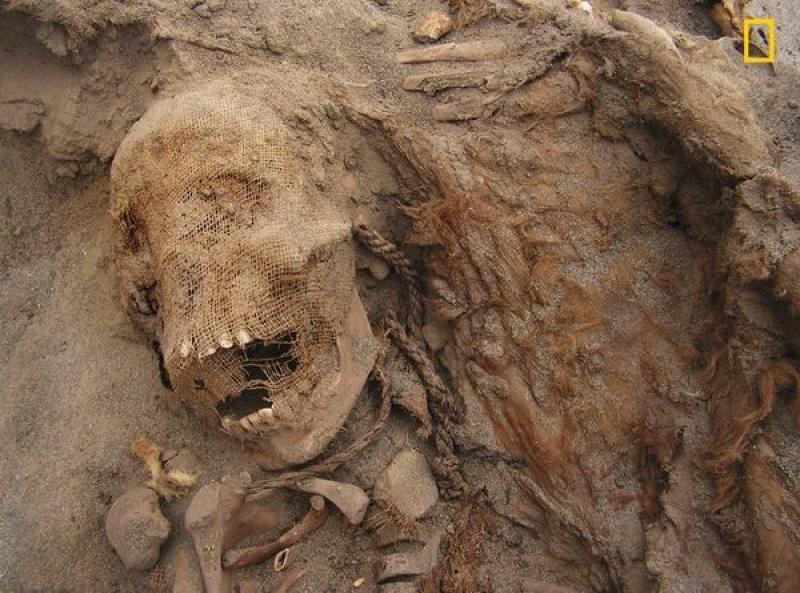Largest known child sacrifice site discovered in Peru

Archaeologists in northern Peru say they have found evidence of what could be the world’s largest single case of child sacrifice.
The burial site, known as Las Llamas, contains the skeletons of 140 children who were aged between five and 14 when they were ritually sacrificed during a ceremony about 550 years ago, archaeologists said on Friday.
The site, located near the city of Trujillo, also contained the remains of 200 young llamas apparently sacrificed on the same day.
The burial site was apparently built by the Chimú empire. It is thought the children were sacrificed as floods caused by the El Niño weather pattern ravaged the Peruvian coastline.
“They were possibly offering the gods the most important thing they had as a society, and the most important thing is children because they represent the future,” said Gabriel Prieto, an archaeology professor at Peru’s National University of Trujillo, who has led the excavation along with John Verano of Tulane University.
“Llamas were also very important because these people had no other beasts of burden; they were a fundamental part of the economy.”
Excavation work at the burial site started in 2011, but the findings were first published on Thursday by National Geographic , which helped finance the investigation.
Verano said the children’s skeletons contained lesions on their breastbones, which were probably made by a ceremonial knife. Dislocated ribcages suggest whoever was performing the sacrifices may have been trying to extract the children’s hearts.
Jeffrey Quilter, the director of the Peabody Museum of Archaeology and Ethnology at Harvard University, described it as a “remarkable discovery”.
Quilter said the site provides “concrete evidence” that large-scale sacrifices of children occurred in ancient Peru.




Additional:
Dear Friend Jasper: Good article on Archeology.
Thanks for posting.
Peace and Abundant Blessings to You and Yours Always.
Enoch.
I'm glad that you enjoyed it, Enoch.
From a related article
People dream up gods and then, over time, descendants believe these stories to the point of sacrificing the lives of human children to satisfy the fictional gods imagined by their ancestors.
child sacrifice in the name of a religion ? color me shocked /s... i guess we should view this site as their god "works in mysterious ways" and "who are you to judge" their god(s), right ? (please note [for general audience]: i don't condone nor approve of child sacrifice. the preceding are popular comments when some of the religious in this day are questioned about their religious beliefs - so shouldn't the same apply to ancient religions and their religious beliefs too ? save the hate mail and hate comments for someone else)
Very informative, thank you